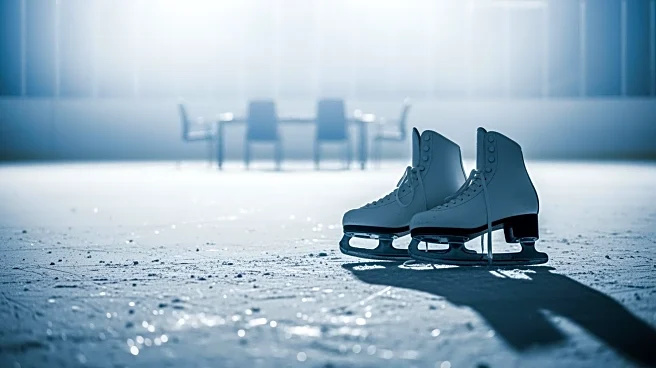What's Happening?
The United States Supreme Court has shown signs of frustration with lower courts, echoing President Trump's long-standing disputes with federal judges. Justices Neil Gorsuch and Brett Kavanaugh have issued opinions criticizing lower courts for defying Supreme Court precedents, particularly in cases involving Trump administration policies. Justice Gorsuch emphasized that lower courts must respect Supreme Court decisions, while Justice Kavanaugh defended the court's emergency orders. This tension arises as the Supreme Court consistently sides with Trump on emergency dockets, including cases on immigration and spending. Liberal Justice Ketanji Brown Jackson criticized the court's approach, likening it to 'Calvinball jurisprudence,' where rules are unclear.
AD
Why It's Important?
The Supreme Court's frustration with lower courts has significant implications for the judiciary's independence and the balance of power between branches of government. The court's siding with Trump on emergency dockets may embolden the executive branch, potentially undermining judicial checks on presidential authority. This dynamic could affect public perception of the judiciary's role and its ability to act as a neutral arbiter. The ongoing debate over the court's emergency orders highlights concerns about transparency and accountability in judicial decision-making, impacting how lower courts interpret and apply Supreme Court rulings.
What's Next?
The Supreme Court's stance may lead to increased scrutiny of lower court decisions and further legal challenges involving Trump administration policies. As the court continues to issue emergency orders, lower courts may face pressure to align with these decisions, potentially altering their approach to cases involving executive actions. The broader legal community may engage in discussions on the implications of the Supreme Court's emergency docket and its impact on judicial independence. Stakeholders, including legal scholars and civil society groups, may advocate for clearer guidelines on the court's emergency orders to ensure consistent application across the judiciary.
Beyond the Headlines
The Supreme Court's approach to lower courts raises ethical and legal questions about the judiciary's role in maintaining checks and balances. The court's reliance on emergency orders without detailed explanations may challenge the principle of judicial transparency, affecting public trust in the legal system. The tension between the Supreme Court and lower courts could lead to long-term shifts in how judicial authority is perceived and exercised, influencing future legal interpretations and the development of case law.










